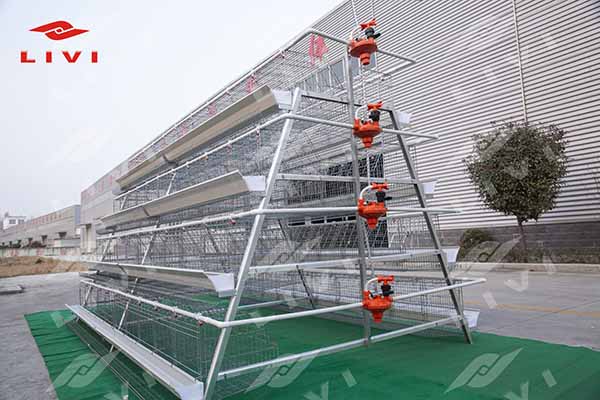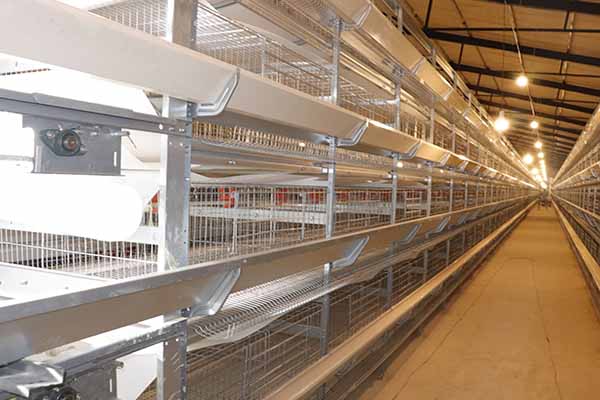Kenyan Chicken Farm Owner Shares Valuable Experience
Time : 2025-04-28
Hey there, poultry enthusiasts and aspiring farm owners! If you’ve been looking for some real-world insights into running a chicken farm, especially one in Kenya, you’re in for a treat. Today, I’m thrilled to bring you an exclusive interview with a Kenyan chicken farm owner who’s ready to share his wealth of experience. So, let’s dive right in and get the dirt on the chicken farming game in Kenya!

Introducing the Kenyan Chicken Farm Owner
Meet Joseph, a seasoned farmer from rural Kenya. With over a decade of experience under his belt, Joseph has built a successful chicken farm that not only feed s his family but also contributes to the local economy. Here’s how he did it, and what he wishes he had known from the start.
s his family but also contributes to the local economy. Here’s how he did it, and what he wishes he had known from the start.
Choosing the Right Location
Joseph stresses the importance of selecting the right location for your chicken farm. “The first thing you need to consider is accessibility,” he says. “Your farm should be close to markets to reduce transportation costs. Plus, you want to be near a reliable source of water and electricity.” He also advises choosing a place with good drainage to prevent flooding and maintain a clean environment for your chickens.
Breeds and Health Management
“When it comes to choosing chicken breeds, I recommend starting with the ones that are well-suited to your climate and soil,” Joseph explains. “In Kenya, breeds like the local ‘Kienyeji’ and ‘Dorper’ are popular due to their resilience and ability to thrive in harsh conditions.” He emphasizes the importance of maintaining a healthy flock, regular vaccinations, and keeping a close eye on the birds for any signs of illness or disease.
Fodder and Feeding Strategies
“Good nutrition is the backbone of a successful chicken farm,” Joseph notes. “In Kenya, we use a mix of commercial feed and natural feed sources like maize, beans, and even kitchen scraps. It’s important to balance their diet to ensure they get all the nutrients they need.” He also shares some cost-saving tips, such as growing your own feed crops or foraging for wild plants that chickens enjoy.
Managing Costs and Profits
Joseph understands the financial side of chicken farming all too well. “Cost management is key,” he says. “Start by setting a realistic budget and track all your expenses. It’s easy to overspend on feed or electricity, so keep an eye on your bills.” He suggests negotiating with suppliers for better prices and keeping an inventory of your stock to avoid over-ordering. “As for profits, be patient,” he advises. “It takes time to build a sustainable business, but the rewards are worth it.”
Challenges and Solutions
No farm is without its challenges, and Joseph is no exception. “One of the biggest challenges in Kenya is the unpredictable weather,” he shares. “Droughts can be devastating, so it’s crucial to have a contingency plan. We store feed in large quantities and keep a water reserve to ensure we can keep our chickens fed and hydrated even during tough times.” He also talks about the importance of networking with other farmers to share knowledge and support each other through difficult periods.
Technological Innovations
“Technology has changed the game for us,” Joseph says. “Using automated systems for feeding and monitoring the flock has saved us time and resources. We also use social media and local markets to market our products and reach a wider audience.” He encourages other farmers to embrace technology, as it can greatly improve efficiency and productivity.
Advice for Aspiring Chicken Farmers
“If you’re thinking of starting a chicken farm, do your research,” Joseph advises. “Learn as much as you can about the industry, breeds, and local markets. Be prepared to work hard, be patient, and stay flexible. Most importantly, don’t give up. Success comes to those who persevere.” He concludes by sharing a personal motto: “One small step for my farm, one giant leap for Kenyan agriculture!”
Conclusion
Joseph’s experience as a Kenyan chicken farm owner is a testament to the dedication and ingenuity required to succeed in this field. By sharing his insights, he’s provided aspiring farmers with invaluable advice and inspiration. Whether you’re in Kenya or elsewhere, the principles he’s outlined can help you on your journey to chicken farming success.
Stay tuned for more insights from Joseph and other industry experts. Until next time, happy farming!












